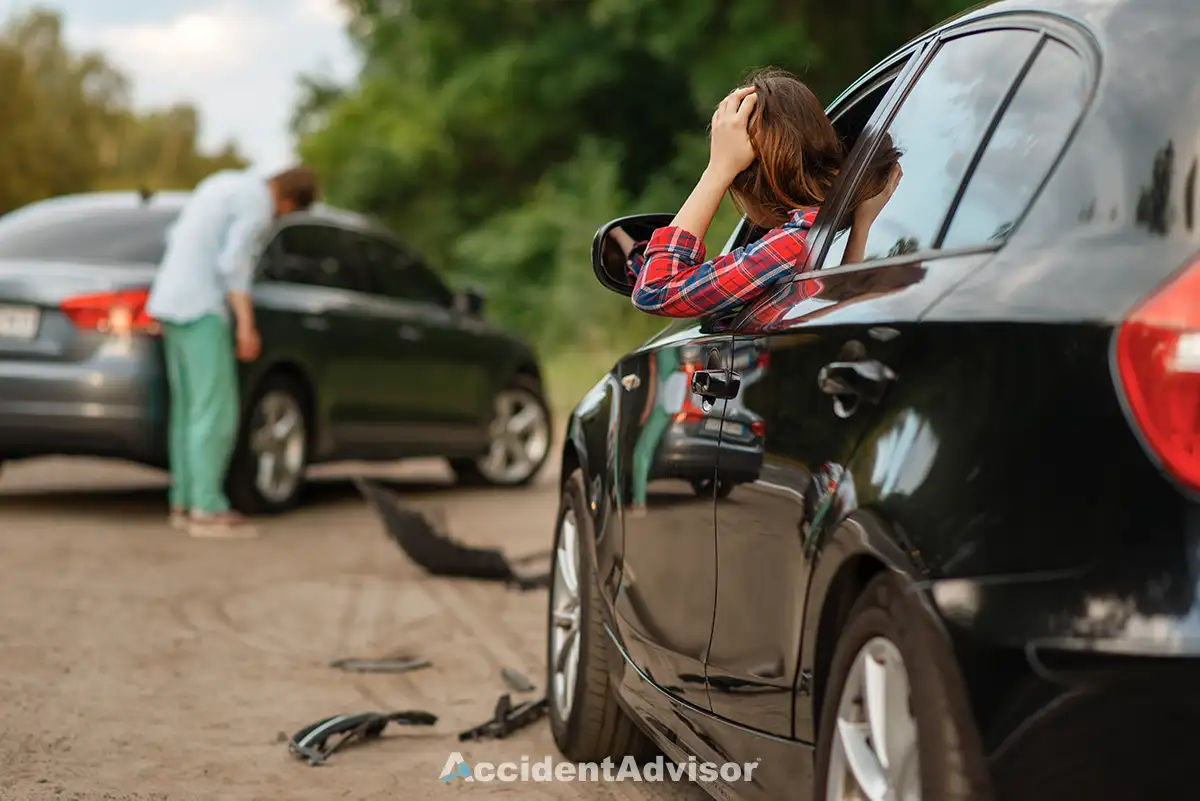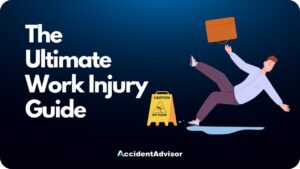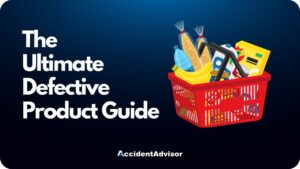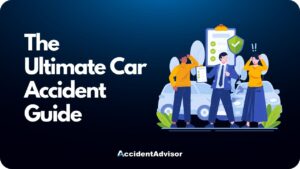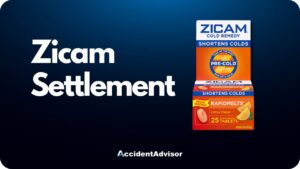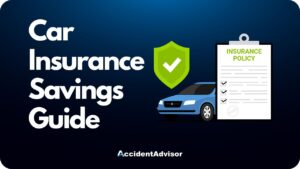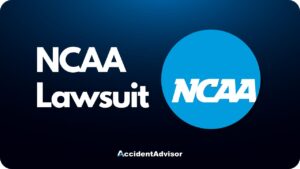If you’re wondering what to do after a car accident, you likely have a lot on your mind. Your post-accident checklist should be safety first, but you also need to follow proper procedures in terms of notifying the authorities, documenting the scene, exchanging information, receiving medical care, and filing for compensation with your insurer.
Doing nothing after a car accident can be just as detrimental as doing the wrong thing. Consider these steps as a checklist for your post-accident process so that you not only keep yourself and your loved ones safe but can file for compensation when the time comes. Speak with a car accident attorney to learn more about your eligibility for a settlement.
Table of Contents
- Move Vehicle to a Safe Location
- Get Away from the Vehicle
- Call 911 and Report the Accident
- Remain Calm and Don’t Admit Fault to Anyone
- Seek Medical Attention for Soreness and Injuries.
- Document Everything at the Scene
- Retrieve Damaged Personal Property
- Notify Your Insurance Company
- Notify the Other Driver’s Insurance Company
- Don’t Post Anything About the Accident on Social Media
- Make Your Demand for Compensation
- Negotiate the Insurance Settlement Amount
- File a Lawsuit if Necessary
- Conclusion
Move Vehicle to a Safe Location
Your first duty after a car accident is to your safety and the safety of other drivers on the road. Turn on your hazard lights and move your car off the road, if possible.
Remember never to leave the scene of an accident since this could be considered a hit-and-run. Even if you were not at fault for the accident, you may not receive compensation later if you leave.
Having said that, you should not put yourself or your family in further danger. If you have to move the car further away to keep everyone safe, that should be your priority.
Get Away from the Vehicle
After moving the car, move away from it for your safety since damaged cars often leak hazardous materials and can even explode.
As another reminder, this does not mean you should leave the scene of the accident. Make sure the other driver knows what you’re doing so they don’t report you to the police for a hit-and-run.
Communication is key in the moments following an accident to keep everyone safe and avoid accusations. As part of this step, you should be checking yourself and your passengers for injuries. Move people from the car if possible, but use your best judgment about what would be the safest move for them.
Call 911 and Report the Accident
Perhaps the best answer to the question of “what to do after a car accident” is to call 911 and report the accident. This step ensure everyone receives proper medical attention and can help your case for compensation with your insurance company later.
Call 911 when any injuries are present so that paramedics can assess the scene and render medical services. If nothing else, you should notify the police so that they file an official report for the accident.
This report will be important for your settlement because it will contain significant details about the accident, including the officer’s assessment of fault, the injuries reported, and the damage they see.
Make sure you get the officer’s name and the case number of the report so you can add it to your evidence later.
Remain Calm and Don’t Admit Fault to Anyone
An admittance of fault, even a less obvious one, can still hurt your chances of receiving compensation later. Remember that the insurance adjuster is not your friend and will do everything they can to reduce or deny your compensation. Even just saying you’re “fine” when asked can be construed later as proof that you weren’t that injured.
Remain calm at the scene of the accident and don’t discuss the circumstances with the other driver, even if you feel you may be responsible for the accident. Don’t apologize, even politely, as this can hurt your case.
Additionally, remember never to discuss the accident with the other driver even away from the scene. If insurance adjusters arrive, don’t say anything to them.
Seek Medical Attention for Soreness and Injuries.
Always accept medical attention at the scene of the car accident. If paramedics arrive, let them evaluate and document your injuries so that the insurance adjusters can’t deny your claim.
Any injury, even soreness, needs to be evaluated both at the scene and by an emergency room doctor or primary physician as soon as possible. This is crucial to your future settlement because a doctor needs to verify that you were injured by the accident and to what extent.
Even if you feel fine, you should still be evaluated. Remember that delayed onset injuries like whiplash can be debilitating despite not being evident until later. If you deny medical attention because you don’t think you need it, you could be denying yourself compensation in the long run.
Document Everything at the Scene
Documenting evidence is an important step following a car accident. This includes photos and videos of the scene as well as contact information.
Pay particular attention to the conditions of the road, the property damage , and the license plates when taking photos. When collecting information from the other driver, make sure to get their name, address, phone number, insurance policy ID number, and car registration. Make sure you give them the same.
Additionally, you should collect the contact information of any witnesses so that they can be contacted later, if needed, to prove fault or verify your claim.
Retrieve Damaged Personal Property
Never throw away damaged personal property following a car accident since you may need to claim it later. Damaged laptops, glasses, and clothes provide valuable evidence about the accident.
For example, if you claim to have sustained lacerations during the accident, your bloody clothes from the day of the accident could be significant pieces of evidence. Keeping these items can prevent the insurance adjuster from downplaying your settlement by claiming that you were injured later.
Since some items may be taken as police evidence, you should make sure to retrieve them before finalizing your case. Speak with your attorney if you don’t know how to get your property back.
Notify Your Insurance Company
In addition to notifying the police at the scene of the accident, you should also notify your insurance company as soon as possible. Provide them with the case number of the police report but stick to verified details wherever possible when discussing it.
Even over the phone, you should be careful of making recorded statements since even simple responses can be construed as an admittance of fault. Deny giving an interview or official statement to the insurance adjusters until you’ve spoken with an accident attorney, especially if your fault is in question.
Remember that you aren’t obligated to say anything to the insurance representatives. You’re only obligated to speak to the police and the other driver at the scene.
Notify the Other Driver’s Insurance Company
In addition to notifying the police and your insurer, you should also make sure the other driver’s insurance company is informed. Note that you have no obligation to speak with them and should avoid discussing anything with their adjuster. Just make sure they know about the accident and have a copy of the police report.
Avoid recorded statements and interviews with the insurer and only provide them with minimal, verified information. If they contact you, tell your car accident attorney and ask them what you should say, if anything.
Remember that you are never required to provide an official statement about an accident, no matter what they say, and doing so can often hurt your case.
Don’t Post Anything About the Accident on Social Media
In addition to what you say to insurance adjusters, you should also be careful not to post about the accident on social media. Sensationalizing or downplaying the accident online can be used against you later, so it’s best to just keep the incident to yourself until your settlement is finalized.
Insurance adjusters are always looking for ways to disprove your claim. Even humor can work against you by implying that you weren’t seriously hurt. As tempting as social media can be, refrain from posting anything publicly and only tell your closest friends about the accident, verbally if possible, to avoid contradicting your claim.
Make Your Demand for Compensation
Money may be on your mind if you’re wondering what to do after a car accident, but making a demand for compensation is only possible after you’ve contacted the insurers, notified the police, and gathered evidence.
See below for how to calculate compensation. Once you arrive at a number, you’ll be sending this demand to the other driver’s insurance company. Your insurer may provide some reimbursement based on your accident coverage, but it’s often necessary to use the other insurer to recoup the costs of the accident.
Your first demand for compensation may not be accepted, but a car accident attorney can advise you on how to negotiate with them.
Calculating Car Accident Compensation
To calculate car accident compensation, you need to factor in both general damages and special damages. General damages are intangible, such as pain, suffering, and emotional trauma. Special damages are monetary expenses like medical costs and lost wages.
Pain and suffering are calculated as a number from 1 to 5 and multiplied by your monetary expenses to arrive at a basic settlement amount.
Sending a Personal Injury Demand Letter
Once you have this number, send it to the other driver’s insurer in the form of a personal injury demand letter. This should include proof of your costs to verify your claim, including medical bills, medication receipts, and more.
Negotiate the Insurance Settlement Amount
The claims adjuster will not likely accept your first estimation of the damages and will want to negotiate. Note that you should always avoid negotiations before submitting your personal injury demand letter. You should also ignore the adjuster’s early offers since they will nearly always be too low.
An experienced car accident lawyer can help you negotiate with the insurer based on the damage you sustained. They can help you recognize lowball offers and get the settlement you deserve.
Additionally, the reputation of the law firm you choose to can change the insurance adjuster’s stance toward your claim.
File a Lawsuit if Necessary
When neither insurance company will adequately compensate you for your injuries, you could resort to a personal injury lawsuit against the at-fault driver. Note that this lawsuit is not against the insurer, but the at-fault driver’s insurer will likely pay for an attorney to represent them against you.
If fault can be proven against the other driver, their insurance company will be required to pay the damages you demand. However, if fault cannot be proven or if you are deemed at fault for the accident instead, you could lose your chance to be compensated for your injuries, making accurate evidence even more important.
Conclusion
Procedure is important when figuring out what to do after a car accident. You need to report the accident to the police and paramedics, contact both your and the other driver’s insurance company, receive medical attention, and watch what you say and do as negotiations with the adjusters begin.
Contact an experienced car accident injury attorney to ensure that you do everything needed to receive the compensation you deserve after your accident.

Rocky Horton
Author
Rocky Horton is a health and safety expert from Chapel Hill, NC. He is the founder of AccidentAdvisor and has been featured in Forbes, Bloomberg, and other publications. Learn more.

